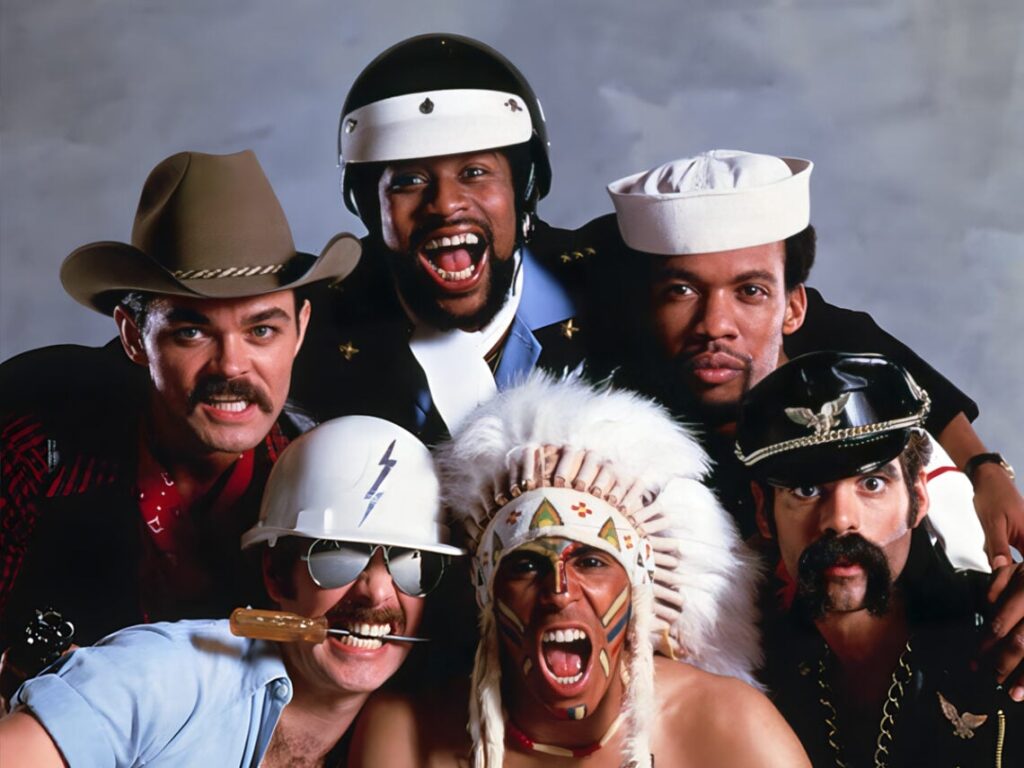Village People singer defends Donald Trump’s use of ‘Y.M.C.A.’
 Posted On
Posted On
(Credits: Village People)
Music was an unavoidable aspect of President-elect Donald Trump throughout the campaign trail. Most notably, the Republican politician was often noted for his use of ‘Y.M.C.A,’ the classic Village People song from back in 1978. At the time, Trump was heavily criticised for his use of the song, but it became an intrinsic aspect of his rallies. Village People singer Victor Willis initially objected to his use of the song but has now defended Trump’s use of ‘Y.M.C.A.’.
Trump’s connection to the track predates the recent election campaign, having been heavily utilised in the 2020 election, too. Around that time, Willis began to field a lot of complaints from fans who took umbrage with Trump’s love of the song. Now, in a post shared to social media, Willis has hit back at those fans.
“Since 2020, I’ve received over a thousand complaints about President-Elect Trump’s use of ‘Y.M.C.A.’ With that many complaints, I decided to ask the President-Elect to stop using ‘Y.M.C.A.’,” Willis shared, “because his use had become a nuisance to me.”
The singer soon went back on this, however, saying, “The Trump campaign knew they had obtained a political use license from BMI and absent that license being terminated, they had every right to continue using ‘Y.M.C.A.’ And they did.”
Not only did the Trump campaign obtain a license for the classic song, but “Trump seems to genuinely like ‘Y.M.C.A.’ and he’s having a lot of fun with it,” according to Willis. The vocalist also noted that the renewed success of the song among Trump supporters has influenced his decision, revealing, “The financial benefits have been great as well as ‘Y.M.C.A.’ is estimated to gross several million dollars since the President Elect’s continued use of the song.”
Initially, many fans were outraged by Trump’s use of the song, given that it has long since been viewed as an important song for the LGBTQ+ community, a community whose rights have repeatedly been eroded by Trump’s policies. Nevertheless, Willis claims that the song is not and never has been a “gay anthem”, sharing, “As I’ve said numerous times in the past, that is a false assumption based on the fact that my writing partner was gay, and some (not all) of Village People were gay, and that the first Village People album was totally about gay life.”
In answer to those apparent assumptions, Willis said, “Get your minds out of the gutter. It is not [a gay anthem].”
However, he also noted, “I don’t mind that gays think of the song as their anthem.” “You’d be hard-pressed to find ‘Y.M.C.A.’ on the playlist at any gay club, parade or other gay activity in a way that would suggest it’s somehow an anthem to the community other than alluding to illicit activity,” he argued, adding: “which is defamatory, and damaging to the song.”
So, it would appear that Trump is under no obligation to cease using ‘Y.M.C.A.’ in any way that he sees fit. In fact, it seems as if its original writer, Victor Willis, would much prefer the Republican politician to continue to boost the royalties of the track.
Have other musicians targeted Donald Trump?
In contrast to Victor Willis’ openness to Trump using his back catalogue, multiple prominent musicians have prevented Donald Trump from using their music at his rallies. Since his campaign in 2016, everybody from Elton John to Nancy Sinatra has come out against Trump’s use of their music. During the 2024 campaign, Jack White threatened to sue the campaign for their use of The White Stripes’ ‘Seven Nation Army’.
Most notably, the estate of soul icon Issac Hayes sought out a permanent injunction to ban the Trump campaign from using any of his work.
The issue was raised after the campaign began to use the 1966 single ‘Hold On, I’m Coming’, written by Hayes alongside David Porter and recorded by the duo Sam and Dave. At the time of the ruling, Hayes’ son said, “I want this to serve as an opportunity for other artists to come forward that don’t want their music used by Donald Trump or other political entities.”
[embedded content]
Related Topics


